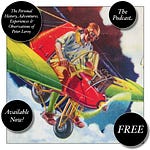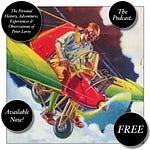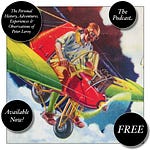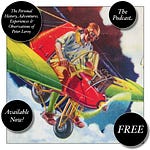AS IT NEVER WOULD BE after classes started, the whole school was open to us when we prowled it in secret. From any point of view other than ours, I suppose, it was closed to us, but because all its parts were equally closed, once we had penetrated one barrier we had penetrated them all. We prowled everywhere, visited every classroom, explored the machinery rooms, knew every closet and storage room, poked around in every office. As the end of the summer approached, we began to resent the fact that we were going to lose our exclusive relationship with the building.
On one of our nighttime visits, we discovered that the entry hall had been laid with terrazzo, the flooring material most like life. To make a terrazzo floor, chips of marble are scattered in a soup of cement, like notable moments scattered through a life, and then, when the conglomerate hardens, the surface is polished so that the bright chips show to good advantage, glinting against the monotonous ground as notable moments do in the memory. We knew that on the first day of school a train of buses would discharge students into this terrazzo entry, so we wanted to lay claim to it, to walk all over it, cover it as thoroughly as we could, make certain that we would be the first kids ever to step on any part of it, mark it as our own before the mob got to it.
We walked, we marched, we hopped, we skated, and my mind began to wander in a direction that had become habitual—toward Raskol’s sister, Ariane. She was on my mind more and more often. When I say that she was on my mind, I mean not only that I pictured her or heard her voice or cast her as the female lead in certain fantasies, though I did all of that, but there was something else, too, an accompaniment to these thoughts of her, something like the background music in a film, but an accompaniment for all the senses, a set of sensations that I cannot fully recall or describe, but which, it seems to me, resembled smoke, Scotch, silk, and saxophones. (This can’t be true, since I hadn’t tasted Scotch at the time, but it’s as accurate as I can make it now, at the time of writing.) As a result, I had begun to feel awkward in Raskol’s company. My awkwardness resulted not only from the fact that I was preoccupied with his sister, but from my unsettling discovery that the mere sight of him made me think of her, made the light seem to dim, summoned the aroma of smoke, the taste of Scotch, the brush of silk, a saxophone’s moan.
I had drifted into one of my reveries of Ariane while we were gliding around on the terrazzo. This one involved my being in that very building, that very night, alone with her instead of Raskol. Ariane and I had been wandering around the building hand in hand and had come to an open window where the night breeze drifted in, bringing with it the pale moonlight. Standing there, dreamy-eyed, Ariane idly fingered the buttons of her blouse. One slipped open, then another, and—
“Damn!” said Raskol.
“What?” I said, or squeaked. Caught! Some look must have betrayed my desires. It wouldn’t have surprised me if Raskol had said, “Damn it, Peter, button my sister’s blouse back up—right now, this minute.”
Instead he said, “Look at that,” nodding back at where we’d been. I saw, in a slant of moonlight much like the one that had illuminated Ariane, footprints of terrazzo dust. Before, in the dark, we hadn’t realized that a dusty residue from the polishing remained on the surface. Now we were tracking it through the school.
“Oh,” I said, relieved. “That. Well. That’s nothing.”
“Nothing?” he said. “It’s evidence. And we don’t want anyone to know we’ve been here.”
“Oh. Sure. That’s right.”
“Peter,” he said. “Wake up. Snap out of it. You’ve been in another world. You know that?”
“Huh? Oh. You mean the way I kind of drifted off? I can explain that—”
“It started while we were skating around on the terrazzo. You seemed to skate off into—some other place.”
“Yeah. Well. It’s funny you should mention that—”
“I think I know what it is,” he said. “What makes you drift off like that.”
“You do?”
“Sure,” he said. “It’s that imagination of yours. Your head’s in the clouds. Not just in the clouds—in outer space.”
“Heh-heh-heh. I guess you caught me,” said I, relieved to find that apparently he hadn’t.
“You were probably thinking about—” Or had he?
“Look, I can explain, Raskol—” I said.
“The moon, right?” he guessed.
“Well, look,” I said, still in the confessional mode, “I—”
“And Mars?”
“What?” I asked, beginning to wake up.
“And the stars,” he said, “and—the whole universe.”
“Gosh,” I said, truly amazed. “I mean—that’s right. Exactly right. How did you figure that out?”
“Easy,” he said. “It was the moon that got you going. On the way over here. The full moon.”
“Amazing,” I said.
“Hey, I know how your mind works,” he claimed. “One little thing gets you going, and you’re off on a train of thought that makes lots of stops. Any little station that comes along—you’re liable to get off and take the next train that comes through. No telling where you’ll wind up. You’ve got a strange mind.”
I thought it might be best to say nothing at all about this conclusion, though I was relieved that Raskol didn’t know my mind as well as he thought, and I was flattered to have him think that I had a strange mind. It was a good time to change the subject.
[to be continued]
Have you missed an episode or two or several?
You can begin reading at the beginning or you can catch up by visiting the archive or consulting the index to the Topical Guide. The Substack serialization of Little Follies begins here; Herb ’n’ Lorna begins here; Reservations Recommended begins here; Where Do You Stop? begins here.
You can listen to the episodes on the Personal History podcast. Begin at the beginning or scroll through the episodes to find what you’ve missed. The Substack podcast reading of Little Follies begins here; Herb ’n’ Lorna begins here; Reservations Recommended begins here; Where Do You Stop? begins here.
You can listen to “My Mother Takes a Tumble” and “Do Clams Bite?” complete and uninterrupted as audiobooks through YouTube.
You can ensure that you never miss a future issue by getting a free subscription. (You can help support the work by choosing a paid subscription instead.)
At Apple Books you can download free eBooks of Little Follies, Herb ’n’ Lorna, and Reservations Recommended.
You’ll find overviews of the entire work in An Introduction to The Personal History, Adventures, Experiences & Observations of Peter Leroy (a pdf document) and at Encyclopedia.com.












